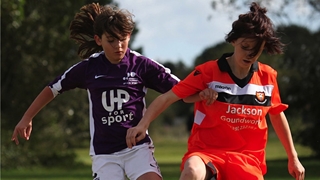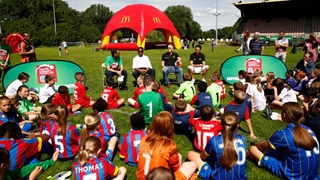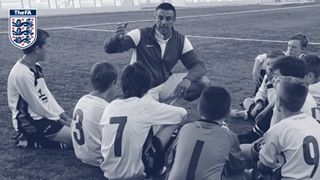
The FA has quadrupled the scale of its College & University Football Hubs project – enlisting over 170 further and higher education establishments to deliver football for over 70,000 grassroots players over the next year.
Through its partnership with British Universities & Colleges Sport (BUCS) and Association for Colleges (AoC Sport), the bold target will also see a further 250 grassroots teams created this season and establish opportunities for 3,140 students to get into football as volunteers, administrators, coaches or referees.
The FA Football Hubs model calls on Further and Higher Education establishments to forge partnerships with the local football community by offering access to their playing facilities - creating greater opportunities to play and boost participation numbers. The project receives investment from Sport England, via Whole Sport Plan, which supports National Governing Bodies in the implementation of sports participation projects.
FA Director of Participation and Development Kelly Simmons MBE hopes the move will give more students the potential to follow her pathway into the sport, as her first link to The FA was first formed when she captained the University of Warwick women’s team and subsequently through her role as the university’s sports sabbatical officer.
"Further and Higher Education institutions play a key role in supporting The FA, getting as many boys and girls as possible into football," said Simmons.
"FA College and University Football Hubs create an environment that enables players to develop, creating lots of flexible playing opportunities to access football, whilst providing access to high quality facilities."
The FA’s Head of Participation Pete Ackerley added: "We have set the ambitious target of doubling the numbers of female grassroots players in the game and working in partnership with our further and higher education colleagues will contribute significantly towards us achieving this.
"We also want to develop a network of highly motivated, qualified student coaches who will serve as a welcome boost to the football workforce."
“Further and Higher Education institutions play a key role in supporting The FA”
Kelly Simmons
Sport England's Executive Director Community Sport Mike Diaper claimed: "The model encourages universities to work with their local communities, bringing students and staff closer to the people around them. Its foundations are firmly rooted in collaborative working between schools, colleges, universities and community clubs - these partnerships that have enabled University Community Football Hubs to have such a positive impact."
One of the first projects to take root was a partnership with the University of Birmingham, who received a £3000 grant to develop a 12-16-year-old female youth development programme involving 40 University students serving as mentors to over 150 school girls from seven local secondary schools.
The programme resulted in a series of football festivals being held at the University's sports facility, managed by the students and providing them with direct football development and event management experience. Many of the 300 schoolgirls who took part went on to join local FA-affiliated grassroots teams.
The University’s Director of Sport, Zena Woolridge OBE, revealed: "The project achieved an extraordinary level of recognition within the University. It has helped showcase how effective sport can be as a vehicle for students personal and leadership development; but also for strengthening the University’s collaboration with schools, and engaging the community."












